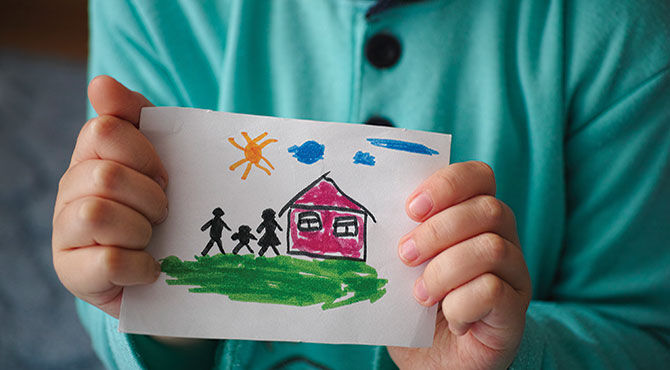Intercultural skills for relocating families
Relocating to another country, with the resulting culture shock and distance from family and friends, can be challenging. Intercultural trainer and consultant Katarina Holm-Didio shares her tips.

Lesson 1
You may have lived in several countries and worked with people from different cultures and yet not display cross-cultural competence in your behaviour. Understanding others begins with understanding yourself. To do so, you need to practise some introspection.Take time to explore and tell your unique family story – your heritage, values, customs and beliefs. As serial expats, remember to develop the narrative continuously. Talk to each other, use visuals, write, and draw. Create a positive narrative, while not hiding the painful.Lesson 2
Some of the children I have met bravely start school without speaking the language or knowing much of what is expected of them and how to make friends. Give your children an opportunity to learn the language and explore cultural differences in education and interactions with teachers and peers prior to the move.Moving is such a stressful event. Spending days in classes where you don’t understand what is being said, and consequently cannot learn, is even harder.While everyone cannot afford private tutors and consultants, there are plenty of affordable or free language and culture learning resources. Libraries are a good place to start. There are books, blogs, podcasts, movies, online learning opportunities, and so on.And, of course, look for, and consult with, peers who either live, or used to live, in the country you are moving to.Related news:
Lesson 3
As parents, we model behaviour to our children. It doesn’t matter what we say if our actions contradict our words. This is especially true when teaching our children about cultural differences and giving them those much-talked-about skills for a global life.Modelling positive coping skills can be challenging if you, as a parent, are going through the different phases of adjustment and perhaps experiencing the dark side of culture shock. Asking your children to be patient, tolerant and open to differences while you openly criticise and complain about your new home and glorify the traits of the place you left behind is counterproductive.Change is hard for most of us. Global relocations, with the subsequent culture change and distance from family and friends, can be emotionally and mentally very difficult. Ignoring the painful and the difficult is not an option, but trying to find constructive ways to cope with them is.As a couple, share your experiences of the relocation with each other. Often, they are different when one partner works while the other cares for house, home and family. Initiate conversations with the children. Create a safe environment where they can voice their feelings, fears and frustrations without guilt or judgment.Finally, don’t forget to share and celebrate the positive and reach out to others for support and friendship. Research tells us that a meaningful relocation experience is built on social relationships. In person. And real cross-cultural learning comes from knowing people who are different.Relocate Global’s new annual Guide to International Education & Schools provides a wealth of advice to anyone searching for a new school in the UK and in an international setting, and offers insights into what it takes to make the right school choice.
For related news and features, visit our Education section.Access hundreds of global services and suppliers in our Online Directory
 Get access to our free Global Mobility Toolkit
Get access to our free Global Mobility Toolkit 
©2025 Re:locate magazine, published by Profile Locations, Spray Hill, Hastings Road, Lamberhurst, Kent TN3 8JB. All rights reserved. This publication (or any part thereof) may not be reproduced in any form without the prior written permission of Profile Locations. Profile Locations accepts no liability for the accuracy of the contents or any opinions expressed herein.




































